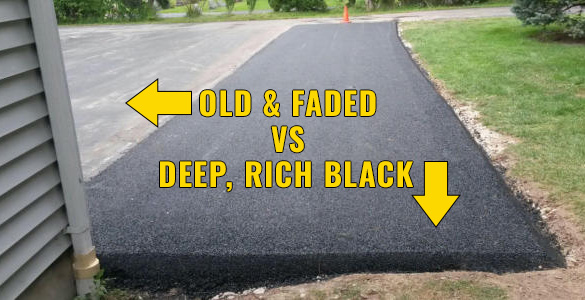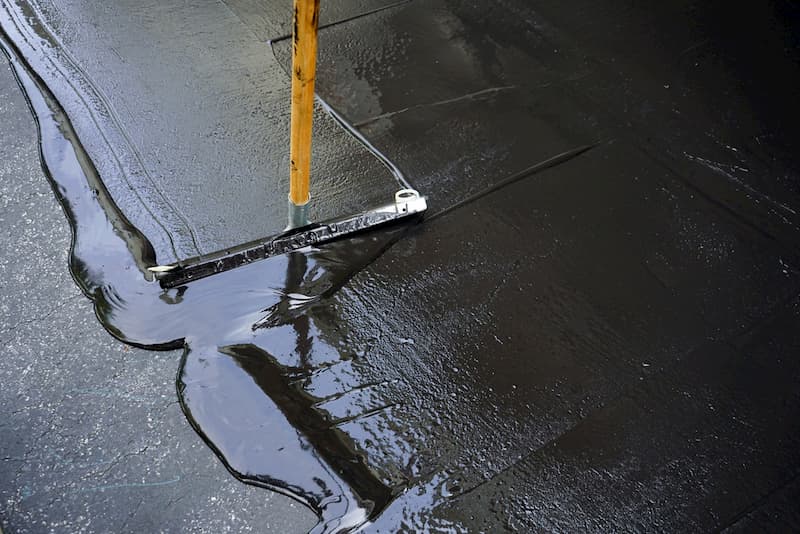Safeguard Surface Areas with Professional Asphalt Sealing: Cold Mix Essentials
Safeguard Surface Areas with Professional Asphalt Sealing: Cold Mix Essentials
Blog Article
Cold Mix Asphalt Vs. Hot Mix Asphalt: Which Is Right for You?

Composition Distinctions
Cold mix and warm mix asphalts differ significantly in their composition, with distinctive features that affect their efficiency and applications. Cold mix asphalt is generated by emulsifying the asphalt binder with water and an emulsifying agent before mixing it with accumulation. This technique permits the asphalt to be practical at reduced temperatures, making it suitable for short-term repairs and for use in colder climate condition. Warm mix asphalt, on the other hand, is manufactured at high temperatures, usually between 300-350 ° F, which assists to accomplish far better compaction and a more resilient end product. The hot mix asphalt manufacturing procedure includes heating up the aggregate and asphalt binder individually before incorporating them at the asphalt plant.
In addition, cold mix asphalt tends to be much less thick and a lot more flexible than warm mix asphalt. This flexibility makes it better suited for locations with higher levels of motion, such as driveways or roadways with rush hour. In contrast, hot mix asphalt is known for its high durability and resistance to rutting and cracking, making it a favored option for highways and high-traffic roads where long life is crucial.
Setup Refine Differences
The procedure of setting up cold mix and hot mix asphalt exhibits remarkable differences in their requirements and treatments. Cold mix asphalt, being a more versatile material, can be applied directly from the bag or container onto the pothole or damaged area. It calls for very little preparation work, such as cleaning up the area and compacting the chilly blend with hand devices. This makes it a practical alternative for short-lived and fast solutions. In comparison, warm mix asphalt necessitates an extra fancy setup process. It entails heating the mixture to high temperature levels before laying it down on a properly ready base. The preparation consists of condensing the base, using a tack layer, and utilizing heavy equipment like pavers and compactors for a smooth and durable finish. As a result of the heating requirements, hot mix asphalt installments are normally lugged out by specialists with customized equipment, ensuring a much more structurally sound and irreversible result.
Toughness and Longevity Elements
When considering asphalt options, durability and long life are important elements to assess for lasting pavement efficiency. Warm mix asphalt (HMA) is look at here now known for its phenomenal sturdiness and long life.
In regards to long life, HMA typically surpasses CMA because of its exceptional stamina and resistance residential properties. HMA sidewalks have a longer solution life, needing less constant repairs and upkeep, which can translate to set you back financial savings in the future. Additionally, HMA sidewalks are more conveniently customizable to satisfy details task demands, better enhancing their toughness.
Price Considerations
Considering the financial implications is an essential element when examining the choice between hot mix asphalt (HMA) and cold mix asphalt (CMA) for sidewalk jobs. While the preliminary price of warm mix asphalt is commonly greater than that of cold mix asphalt, HMA usually gives an extra affordable remedy in the lengthy run due to its superior longevity and long life.
Along with material expenses, it's necessary to think about the expenditures related to setup and upkeep when comparing HMA and CMA. HMA generally calls for specialized web link equipment and proficient labor for correct installment, which can influence total job prices. Alternatively, CMA is simpler to work with and can commonly be applied utilizing easier techniques, possibly reducing installment costs. Inevitably, the decision in between HMA and CMA ought to take into consideration not just the first cost but additionally the lasting financial ramifications to establish one of the most cost-efficient alternative for the details pavement task.
Environmental Effect Comparison
Comparison of the environmental effects between hot mix asphalt (HMA) and cool mix asphalt (CMA) discloses unique differences in sustainability practices. HMA manufacturing requires high temperature levels, bring about increased energy usage and greenhouse gas exhausts. The process likewise releases volatile organic substances (VOCs) and harmful air contaminants (HAPs) right into the ambience. In contrast, CMA is generated and applied at reduced temperature levels, reducing energy usage and emissions significantly. The lower manufacturing temperature levels of CMA cause lowered gas usage and reduced levels of CO2 exhausts, making it an extra eco-friendly option.
Moreover, the use of CMA usually includes recycling existing asphalt sidewalk, promoting source conservation and lowering the quantity of waste sent out to land fills. By opting for CMA over HMA, road building and construction jobs can contribute favorably to environmental preservation efforts.
Conclusion
To conclude, the option between cool mix asphalt (CMA) and hot mix asphalt (HMA) relies on numerous elements such as composition, installment process, durability, durability, cost, and environmental effect. cold mix asphalt. While CMA offers a quick and affordable service for minor repair services, HMA guarantees superior resilience and longevity for rush hour locations. Think about these aspects meticulously to figure out which kind of asphalt is the right option for your paving requires

Thinking about the economic effects is a crucial aspect when reviewing the choice between hot mix asphalt (HMA) and cool mix asphalt (CMA) for pavement jobs. While the preliminary expense of warm mix asphalt is normally greater than that of cool mix asphalt, HMA often gives an extra cost-efficient solution in the lengthy run due to its premium sturdiness and longevity. angle parking.Comparison of the ecological impacts in between hot mix asphalt (HMA) and cold mix asphalt (CMA) discloses distinct differences in sustainability practices.In verdict, the option in between chilly site link mix asphalt (CMA) and hot mix asphalt (HMA) depends on various elements such as composition, setup procedure, longevity, long life, price, and ecological effect
Report this page